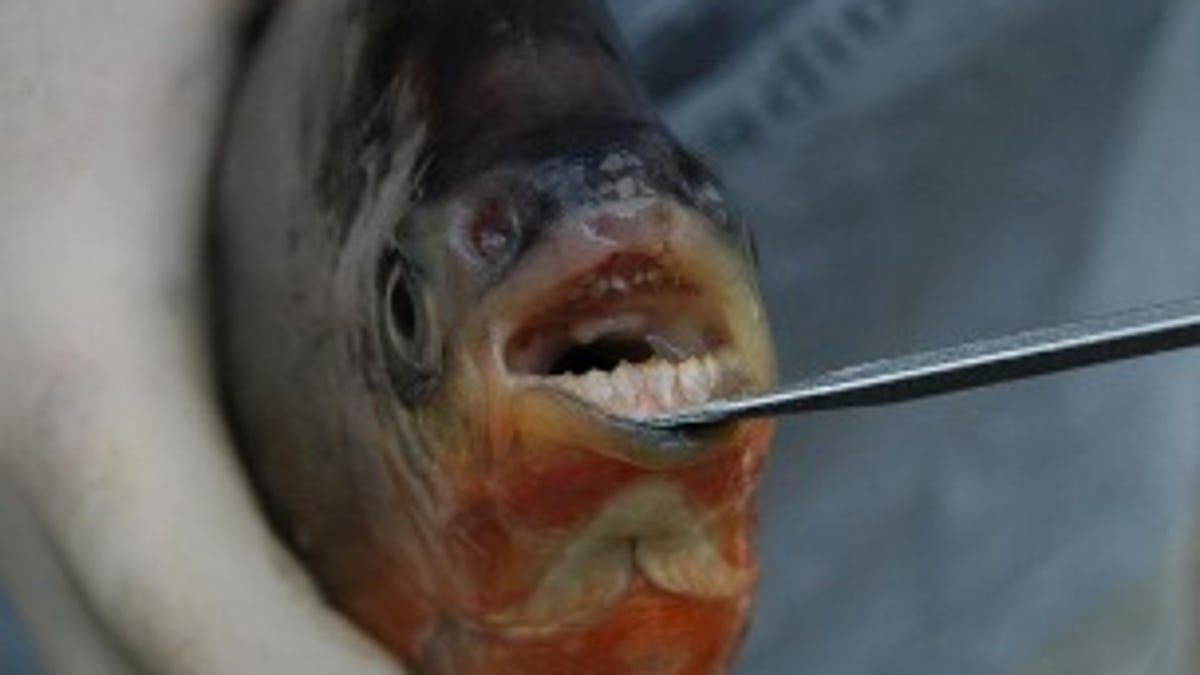Toothy terror: Fish with human-like teeth found in Michigan
Horror-movie quality pacu is native to South America, so stop dumping them in our lakes and rivers, aquarium owners.

Wonder if the pacu flosses?
It's like one of those unnerving YouTube videos come to life: You know the ones, where human mouths are superimposed on animals. But it's creepily real.
The South American red-bellied pacu, a popular aquarium fish with horrifically human-like teeth, has been pulled out of two separate bodies of water in Michigan, the state's Department of Natural Resources reported Tuesday.
This horror-movie-ready swimmer is not new to the US -- it's kind of starring in a sequel. Last summer, the pacu was reeled in by a New Jersey angler, much to the delight of those who still get into making Jersey jokes. As we reported at the time, the pacu has been labeled a "testicle-biter," though that seems to be kind of unfounded (it's a vegetarian).
The toothy terror has actually been found in 27 states, the Michigan DNR said, and they blame aquarium owners, who perhaps feel guilty (or panicked?) as the fish grows larger in their perhaps-too-small tanks, and decide that freeing it is a good option. Spoiler: It's not.
"Pet release is almost never humane," said Nick Popoff, manager of the Michigan DNR's Aquatic Species and Regulatory Affairs Unit, on the group's website. "Those that do succeed in the wild can spread exotic diseases to native animals. In the worst-case scenario, released animals can thrive and reproduce, upsetting natural ecosystems to the degree that these former pets become invasive species." It's also illegal, he points out, to put any fish in state waters without a permit.
So either don't get these fangy fishies in the first place, or keep them in your tank. And maybe teach them to floss.

